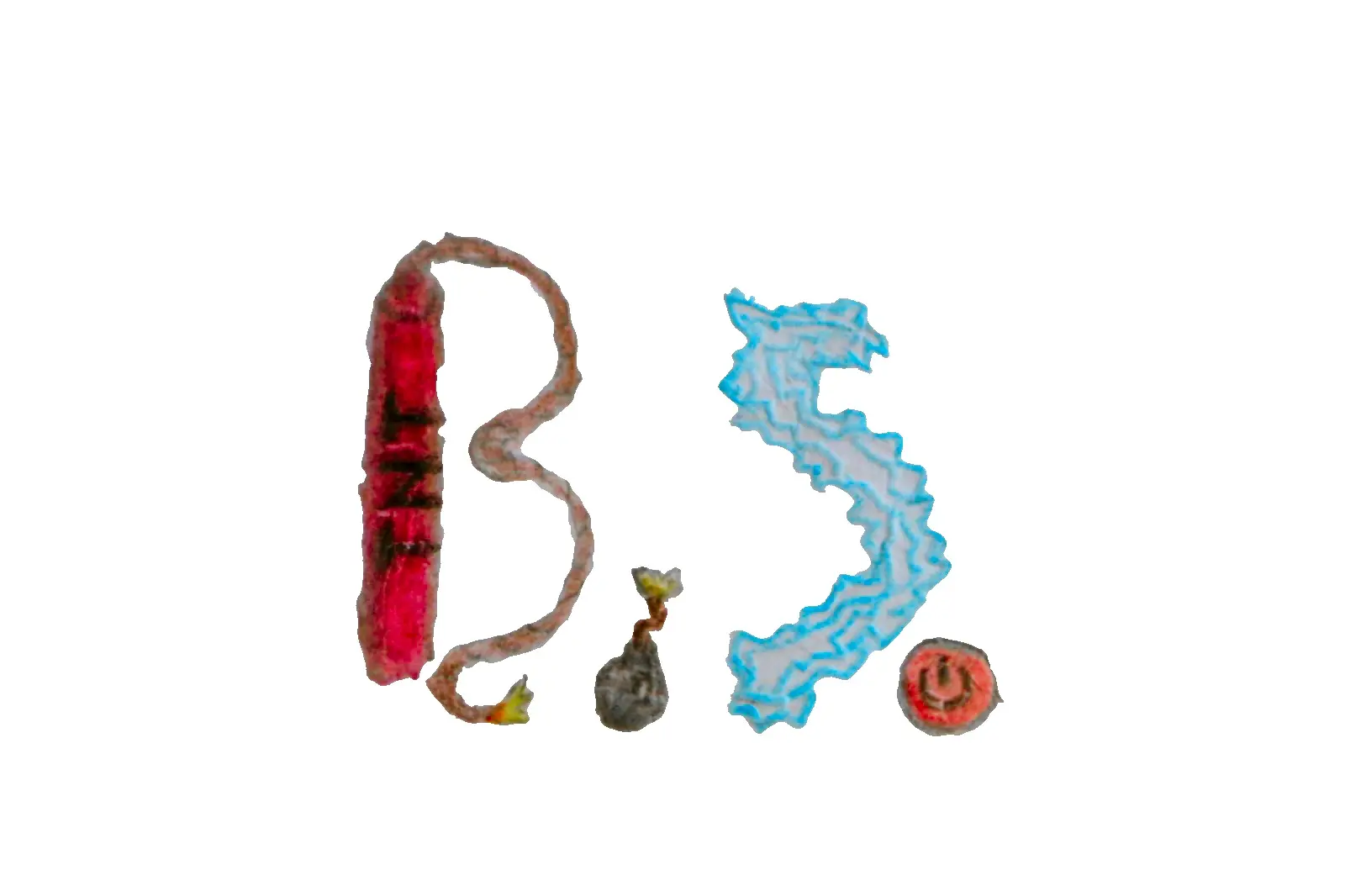The fact that it’s the consumer’s responsibility to sort their waste and to try and minimise its impact on the environment in the first place is completely wrong to me.
Most people in urban areas rely on stores for basic survival, and the vast majority of products we buy there come with unnecessary waste. It doesn’t make any sense to then tell these people “by the way, you’d better clean up that mess when you’re done because it’s bad for the environment”. If governments were truly concerned or willing to act, this waste wouldn’t make it into our homes in the first place.
If a company wants to sell a product, they should be held accountable for the waste that comes along with it. They should have to prove that they can reuse the waste and be incentivised to reduce it. If they can’t, they can’t operate.
Ecocide laws need to become commonplace, and the consumer should not be responsible for their waste if they haven’t got legitimate alternative options. I understand this community is more willing to do their part in this regard, but I don’t think it’ll ever be feasible to expect this from the wider population. We need to stem the flow, not just handle the mess.
Sometime in the past year or so I started wondering aloud about the amount of paper and plastic packaging that was thrown into bins by the checkout in my local supermarket. Pretty much any outer wrapper or carton that would have an inner sealed bag/box.
I genuinely didn’t understand what was going on, as I never saw other customers unpack and discard all this. A kind mastodon user then told me about a movement to put the burden of excessive packaging back on the shop rather than consumers:
By unpacking double packaged goods and discarding the outer box/wrapper in the supermarket’s bins, these shoppers make visible to the staff and (ideally) owner that this is superfluous and unwanted materials, and BTW you get to throw it out now.
I haven’t managed to track down any other information about this sort of everyday activism, but I think it’s an appealing way to protest the amount of waste going into our homes on a daily basis.
Very cool idea. It reminds me of how many receipts are printed just to be immediately tossed in the bin by the cashiers or customers. It’s maddening.
There was a trend here a few years back where they’d ask if you wanted a printed receipt. You can still get digital receipts instead if you’re on a loyalty membership I think.
What annoys me is when I use the self-service checkout I need a barcode on my paper receipt to open the automated gate and leave the shop 🙄
Sadly even if you reject the receipt in my regular shops they still get printed, the staff just toss them instead.
A wide adoption of a digital alternative would be great. It of course opens up questions around the impact of hosting them digitally, but I’m optimistic that would cost less than all the unnecessary paper, especially if the service was hosted on renewable power.
Retiring plastic packaging (e.g. blister packs) wherever possible in favor of cardboard or other biodegradable alternatives would be a huge step in the right direction. The amount of plastic waste from basic things that don’t require it is pretty ridiculous. There’s no reason that a tool (for example) needs to be packaged in plastic. It doesn’t even need packaging in the first place in most cases.
A friend of mine works in pharma research and said the amount of plastic waste is staggering. The general belief is that materials need to be sterile and this is the only way, however it sounds like they’re beginning to question this narrative.
It sounds like a potentially lucrative problem to solve!
good thing that’s exactly what the EU recently legislated for :)
Another win for the EU! Forcing Apple to adopt USB Type C was such a huge triumph also.
Completely agree.
But I also think if you have the priviledge to be able to minimise waste yourself, you should definitely do it.
100%
Imagine if you could go to the store with reusable containers and fill them up with foodstuffs. I eat a lot of beans, I could just fill up a bunch of sacks or cannisters at a dispensary rather than buy all these cans and bags. Need soap? Just go to the soap dispensary and fill up a jug. Etc. Etc.
This is mandatory for shops here to have a bulk aisle since 2020, great news! Downside is you sometimes have weevils or moth infestation, and stuff are often more expensive than packaged ones, I guess bescause it needs more manpower and is easier stolen
I’m imagining this rather often.🥹 Going to the store with our reusable containers and filling them with what we need (~ideally in a moneyless society)
There used to be a few shops like this in Norway! Came to my town after I moved to Denmark, but I think they went bankrupt. At least, the shop is not in my old hometown anymore.
Unfortunately these types of dedicated shops tend to be expensive - at least this has been the case for the soap dispensaries I’ve been to. Until they’re more widely adopted, I guess that problem won’t go away. It’s an unfortunate paradox! I’d love for governments (or benevolent rich folks) to subsidise businesses like these so they can appeal to a broader audience.
There was a shop like this at the last town I lived in. I’d always leave with an absurd volume of things for the amount of money I spent.
My local Co-Op lets you weigh any empty containers at the front for use in the bulk section. So you can fill them up, even peanut butter. The spices are a pretty good deal too. Next door to it is a place that will refill soap and shampoo and stuff.
For sure! However these are conscious choices that informed consumers can make. What I’d love to see is a world where an uninformed consumer can choose default products that have no impact on the environment because the government has made it so. No additional effort is required on the part of the consumer.
Want foodstuffs? Those are purchasable by weight and if you need a container they’re cardboard or glass. Want soap? The store stocks bars of it or liquid by weight.
I did not mean to imply that consumers should have a choice. They can go to the refillable bean dispensary and they’ll like it.
Haha, I like your style!
or even stuff like laundry detergent.
We need packaging minimisation legislation that requires manufacturers to minimise packaging to an absolute minimum both in terms of sheer volume but also in terms of material complexity meaning no gluing together plastic and paper or fused metal plastic wrapping where it is not needed. And finally minimising the packaging also inadvertently means you cannot make bottles weird shapes to fool you into thinkng the bottle is bigger than it actually is, because that means unnecessary material was wasted
the EU recently passed this: https://environment.ec.europa.eu/topics/waste-and-recycling/packaging-waste_en
Thanks for sharing! This is very cool, some great common sense in action.
Point no. 3 here makes me wonder. Is it worth making plastic for temporary items circular? In the end it will find its way into the trash. Would it be better to bite the bullet and just outlaw plastic in these situations? I guess plastic is very useful especially in regards to food safety.
It aims to: Prevent and reduce packaging waste, including through more reuse and refill systems. Make all packaging on the EU market recyclable in an economically viable way by 2030. Safely increase the use of recycled plastics in packaging. Decrease the use of virgin materials in packaging and put the sector on track to climate neutrality by 2050.
100%
At a minimum, if a company wants to use a certain type of packaging for their products, they need to prove that they have the means to fully reuse it as part of their own mini circular economy. If their packaging is found at the beach, it can be placed into a bin, sorted and sent right back to them, and they’re happy to receive it.
Even better of all packing is 100% natural compostable in the first place so of it ever ends op in nature it’ll be gone before you even find it.
When I was younger and sillier, I threw a banana skin into the river above the lower Yosemite falls in order to watch it cascade into the plunge pool below. The people in the pool below shouted at me for littering. I didn’t understand because, as far as I could tell, the item was compostable.
I learned: A) The item was not native to the area B) It could attract bears C) Despite being compostable, it would take years to degrade
I agree with what you’re saying, ultimately if it can decompose it should be all good. There are other factors to take into account, however, such as cleanliness and contamination.
I agree that it’s still littering. It was also more as an “if in worst case it does end up in nature it is at least compostable” kinda thought.
Despite being compostable, it would take years to degrade
What the heck do they think a banana peal is made of?! From my own experience no more than a single year and it is degraded so much it is basically dirt
I often wish grocery stores where like in the seventies but with just more options food wise. Almost no plastic and paper bags when you leave (although reusable is still better although im not sure how big a deal they would be nowadays since we use so much less paper.)
I’m all for packaging minimization but I also acknowledge that if I, the consumer seek single serving products, I’m pretty glad they are food safe and isolated. This is the part where “reduce” in the recycling slogan can manifest: what’s the absolute minimum packaging needed to keep a consumer safe?
I’m not saying companies shouldn’t ever be responsible for their packaging waste, it’s a good idea. But I think municipal trash is meant to be that answer, in that rather than every company managing their own streams of returns, the locality does it, and sorts them by general type for efficiency/efficacy.
Therefore I think it best to factor waste costs from the company into that centralized system, so efficiencies of scale can manifest. This allows for better oversight and lower overall costs. The game is not allowing companies to be absent from this stage.
With acknowledgment that increased costs would land on the consumer one way or another, I’d conclude by saying centralized waste management needs to be better funded, and more sophisticated recycle/reuse systems implemented with those new funds.
Safe food packaging existed before non-biodegradable plastics.
I doubt hardly anyone remembers the Tylenol Murders, but that was a monster change in our mental consumer safety map. I was a child and watched grocery store packaging change overnight. Freaked me out as a kid to see such change vs. what had been normal before.
Suddenly everything was tamper resistant. If people stepped into a 1980 grocery store they would freak out, think it was sooo unsafe.
And while we’re at it, that was around the time idiots were protesting paper grocery sacks, as if the evil corporations were chopping down old-growth forests. So they won and we got plastic.
Who brought up plastics?
I think you misunderstood my point. Wasteful non-biodegradable, non-recyclable packaging is a relatively recent thing. Before plastics came along, food was packaged safely in variants of paper, glass, steel, and aluminum. There’s no reason we couldn’t go back to the pre-plastics way of doing things other than convenience and maximizing profit.
Also biodegradable plastics exist, but they aren’t used as much because they cost slightly more than the non-biodegradable ones and companies don’t want to lose those pennies with every sale. If there was a tax on non-biodegradable plastic for any use outside the medical field, it would probably fix this.
Are there any examples of such food safe/isolated products that you think are justified in being packaged with single use plastic?
That’s a bit of a leading question, as if I advocated for single use Plastic specifically.
I’m not a food health scientist so I’d leave it at: as a consumer I want whatever keeps people safe, and is of the least impactful material. Commonly that’s plastic, but as we see with glass bottles, options exist.
Apologies, I assumed you meant using waste, i.e. packaging materials that are not easily reused, to ensure food safety. Glass is great in comparison to plastic.
Soaps could be in large vats that you fill your own containers with.
Bread could be sold as is, but without the paper or plastic bag. Just put bare into shelves.
Produce could be sold mostly as is, but without the plastic and without the option to put it in a plastic bag from a roll.
Glass jar preserves could be sold as is, but with an expanded capacity for accepting glass jar returns from customers.
Meat could be sold from the butcher, only. Or ideally criminalized.
Candy could be in a wall of easy to open boxes and you use a scoop to put it in a paper bag.
It’s not hard to solve. It’s not even really hard to implement.
Not really the point of the post but sure, or directly relevant to my comment no contest with the options you laid out
I think the simple way to accomplish what you’re saying is to require all manufacturers and distributors to put significant deposits on their packaging. It would force them to take back their packaging for reuse or proper disposal. I would want such a measure to be paired with standardization of all packaging. There should only be one type of container for each set of similar products.
So they would have to pay for the packaging, and upon reusing/recycling it they get the money back? It’s a great idea - but who would they be paying this deposit to? The government?
In practice, it varies between jurisdictions who is ultimately responsible for the deposit. Regardless, it’s a policy that works really well for bottles and cans. It should be applied to other types of containers and packaging.
You have gotten one fundamental thing wrong though: if you look at the actual bill of material for most supermarket items it is often not the part that you think you are buying that costs the most, and it is certainly not the part that makes the most profit. In reality what you are being sold is the packaging and what comes inside is more of an annoying but necessary expense for most companies.
So what you’re saying is that if companies can’t use their fancy packaging, they’ll have a smaller profit margin on the actual good they’re selling?
The system is very fucked!
Basically. The most extreme example is bottled water, where the water is worth next to nothing and you are purely buying the plastic bottle (and to some lesser extend the transport by truck).
But packaging also allows for easy market segmentation which allows companies to sell almost the identical product in multiple price categories based on marketing and image of a brand.













